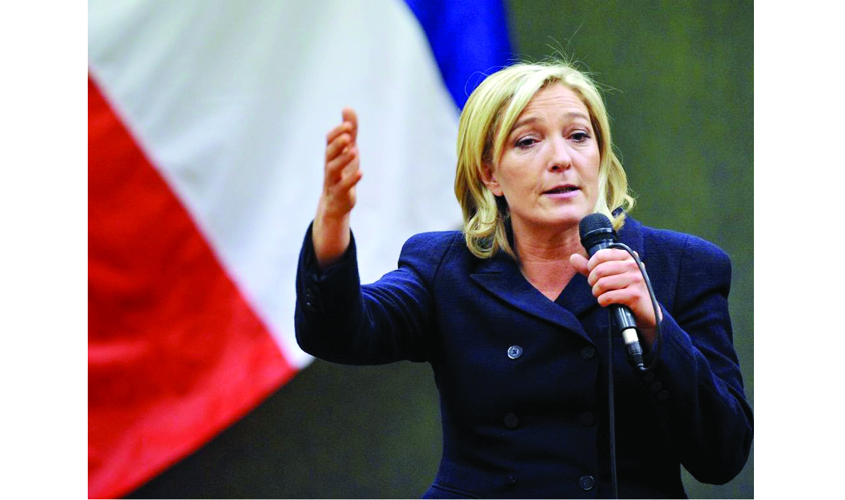As the first round of the French presidential elections approaches on 23 April, many social conversations avoid the subject of Marine Le Pen. In spite of British citizens’ democratic acceptance of Brexit, the French campaigner’s name can still throw a hand-grenade into a social occasion. Le Pen took over as leader of the Front National in 2011 and parked her father, Jean-Marie Le Pen whose reputation verged on fascist, marginalising him from the party he founded.
Le Pen has the wind in her sails of the French nationalist zeitgeist, much in the same way that the wind blew for Brexit and for President Trump. The grassroots of French citizenry approve of her patriotic approach. The chic, erudite and sanguine Le Pen is no two-dimensional figure as her performance on television and to the media in general bears testament. In the tradition of French politics she is capable of Le Grand Discours (the big speech), making literary and historical references during her interviews, this constant referencing of the French cultural identity presses the buttons of “Liberté, Fraternité and Egalité” and also secures confidence among the French intelligentsia.
The old FN message appears watered down in terms of presentation, but times and French experiences have changed, making the FN patriotic message more palatable, gathering support amongst the young, dissatisfied with the establishment’s liberalism, the rural agriculturalists and the urban unemployed. Europe and the West have a new atmosphere, of the fear of enslavement either by Brussels or Sharia. The FN themes are protectionist, both for France’s borders and economy; Le Pen wants to create more jobs to satisfy France’s increasing unemployment. Immigration past and present is blamed for many of France’s troubles. Le Pen says she will limit immigration to suit the resources of the economy, admitting only 10,000 immigrants per annum, like other European countries, the security of the nation is the big ticket. France has been the victim of numerous terrorist attacks and is known to have a problem with adolescent terrorism, just this week another three youths were arrested in l’Oise for terrorist links in the Iraqi and Syrian area. The French policy for de-radicalisation has not worked. Between 2015 and 2016, jihadist attacks accounted for 238 deaths.
If the EU does not comply with Le Pen’s border and dual currency (a national currency plus a commercial currency) ideals, she has offered a referendum, a Frexit, an idea which terrifies investors. Her creation of a “patriotism” tax of 3% on imports and reduction of income tax, reducing bureaucracy and introducing proportional representation is popular with citizens. Le Pen is a big proponent of a zero-tolerance approach to social fraud, as a former attorney she is big on law and order.
The FN has tightened its position on secularism, advocating the prohibition of ostensible religious symbols in the public space and private enterprise. The French concept of “laicité” according to FN interpretation means religion has no place in enterprise. All employees’ religious beliefs, however respectable, must remain at the door of the enterprise. The FN says this applies to all religions, but in reality, Muslims fear this is aimed at them.
The values in the message are constant, the delivery is more rational and the argument in today’s context of national security is considered reasonable. The climate in France and indeed other European countries yields a much more receptive audience, as manifested by Marine Le Pen’s support rising in the election polls to 27%, closely challenged by Emanuel Macron, the independent quasi-socialist. At the time of writing, there is only 1.5% points between their popularity; it is these two, the polls predict, will proceed to the second ballot in May. After Brexit and the American election poll miscalculations, the question is can the polls be trusted?

